Veni, Vidi and Vici grants awarded to the University of Groningen in 2025
Grants awarded by the Netherlands Organisation for Scientific Research (NWO-Talent Programme).
Vici awards
The Vici grant targets senior researchers who have successfully demonstrated the ability to develop their own innovative lines of research. In doing so, they have also supervised young researchers. Researchers who receive a Vici grant have the opportunity to further develop their research group, often in anticipation of a tenured professorship, if they do not already have one.
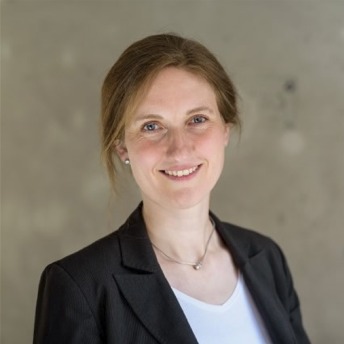
Prof. Merel Keijzer
The research for which Merel Keijzer has been awarded a Vici grant concerns dementia. Dementia is the greatest public health challenge of our time. Needed to manage it are dementia-friendly spaces and person-centered care. But the current care system is not equipped to serve the group of dementia patients that has seen the steepest increase in incidence numbers: those with a migrant background. This project is the first to detail the language barrier that exacerbates health disparities in dementia care and explore the potential of language strategies and home language therapy to transform dementia care for migrant PWD in their communities, in acute and long-term care.
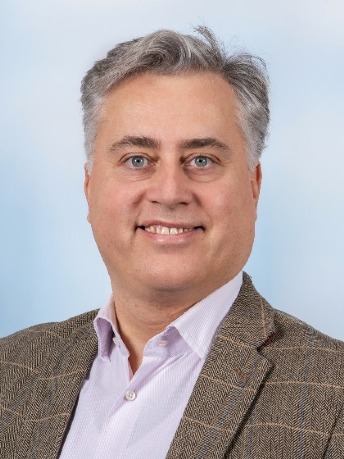
Prof. Charalampos Tsoumpas
The grant awarded reserach project of Charalampos Tsoumpas focuses on developing innovative image reconstruction methods. The latest generation of positron emission tomography combined with computed tomography (PET/CT) presents significant opportunities for both research and clinical applications. However, current image reconstruction techniques have yet to fully leverage these advancements. This project aims to lead the development of innovative image reconstruction methods that will dramatically reduce radiation exposure without compromising accuracy or image quality. We will integrate cutting-edge advancements such as artificial intelligence, and quantum entanglement. This initiative will not only deliver a substantially less radiation dose to patients and healthcare personnel but also broaden the scope of PET/CT across a wider range of clinical indications.
Vidi awards
Vidi grants are intended for experienced researchers who have been conducting successful research for some years after gaining a PhD. With this grant, the researchers can develop their own innovative five-year research plans and can establish their own research groups.
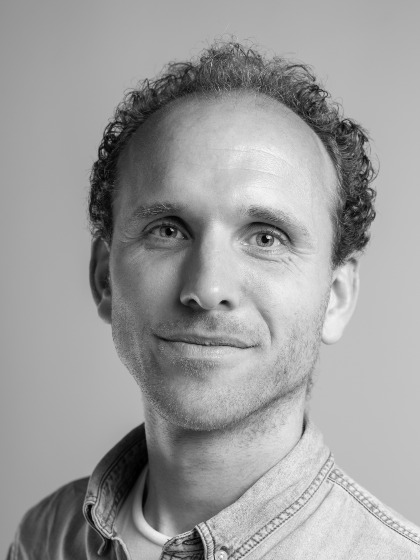
Dr Tom Boot - What happens there, matters here: the econometrics of latent connections
Economic policies do not just affect one individual, one company, or one country. Instead, their effects spread: a wage increase affects the direct recipient and those that depend on their income, a financial stimulus for one local business affects others in the supply chain. In practice, researchers rarely know who is exactly connected to whom. As a result, economic policy can produce unintended and unpredictable side effects. This research develops new methods to uncover hidden economic connections directly from data. By making these links visible, policy makers can anticipate and manage spillovers, rather than being surprised by them.
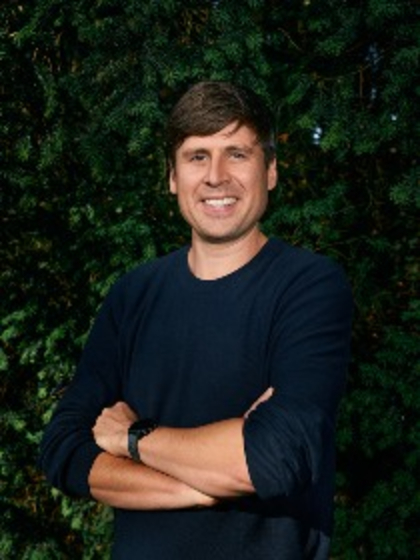
Dr Thijs Bouman - A Climate of Cynicism: Causes, Consequences and Remedies Relating to Widespread Cynicism about People’s Value-Basis for Climate Action
There is an urgent need to address climate change, yet action is lacking. Limited engagement in climate action is often interpreted with cynicism: “people are primarily self-interested and undervalue society and nature”. However, the opposite turns out to be true. Most people value nature and society strongly, and are willing to support and take climate action. This Vidi project examines whether cynicism, rather than indifference, hinders climate efforts. Does it discourage individuals from participating? Does it prevent decision-makers from implementing those policies that enable climate action? And could reducing cynicism be vital for achieving a sustainable society?
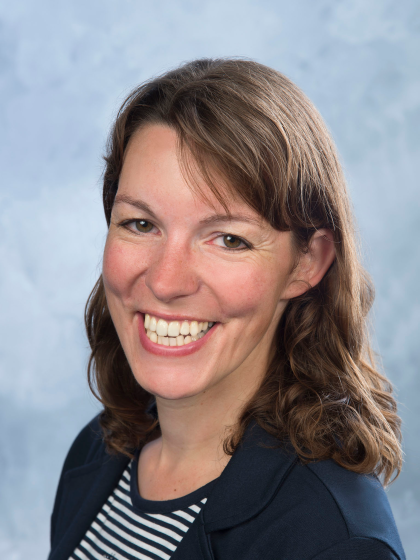
Dr Jasperina Brouwer - The future of informal care
This longitudinal study investigates the conditions for providing sufficient informal care by developing the Social Care model to study how individual, social and societal determinants (legal regulations, policies, social norms and values), influence changes in caregiving networks. Based on collected empirical data, simulation models will explain which conditions enable citizens to provide informal care and what future available care will look like, given demographic changes. The findings are crucial for developing solutions that ensure sustainable informal care.
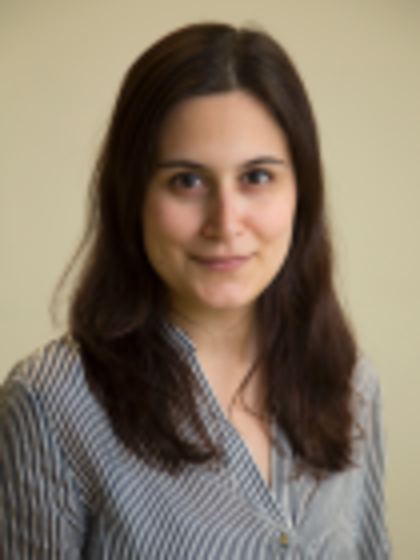
Dr Julia Costa López - Communities in Time. Bodies, Customs, and Rhythms in the Early Iberian World
This project analyses how the ideas of what a political community is changed in the contacts between cultures in the fifteenth and sixteenth century Portuguese and Spanish empires. It looks at different social practices and how they portrayed communities as something that exists in time. Specifically, it looks at how people claimed to be following a collective custom, at how medical science thought bodies could change but also pass on traits through generations, and at how conquered communities changed their use of time. Through this, the project aims to understand how different ideas of time interact and change each other.
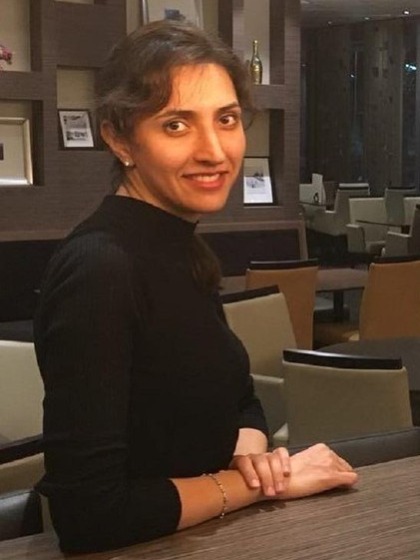
Dr Bahar Haghighat - An Autonomous Miniaturized Robot Swarm for Real-Time Infrastructure Vibration Inspection
Aging steel infrastructure can develop hidden damage that leads to costly repairs or dangerous failures. This project develops a new system of miniature robots that move across steel structures to detect signs of structural damage. Working together as an intelligent swarm, the robots analyze vibration signals to identify potential defects and adapt their inspection strategy in real time. By combining robotics and artificial intelligence in a compact and autonomous system, this approach makes infrastructure inspection faster, safer, and more reliable, helping extend the lifespan of critical structures while reducing maintenance costs and risks to human inspectors.
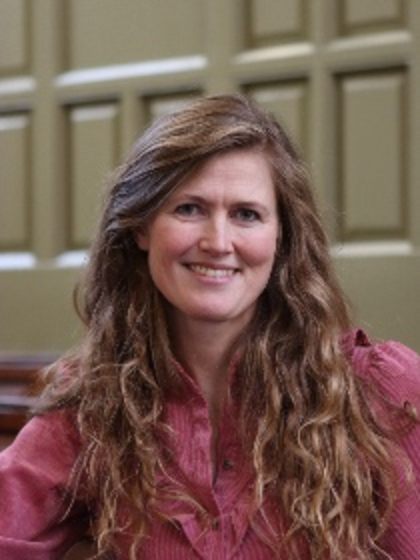
Prof. Namkje Koudenburg - The Conversational Dynamics of Polarization: Bottom-Up Drivers of Societal Division and Democratic Resilience.
Polarization is one of the major challenges of democratic societies. Taking a bottom-up approach, this research examines whether micro-dynamics in everyday (political) conversations can fuel societal polarization. It also tests whether subtle changes in conversational form contribute to a healthier democratic debate. The goal is to develop practical tools and interventions—together with governments and media partners—to reduce the tension that arises from opinion differences and improve public debate.
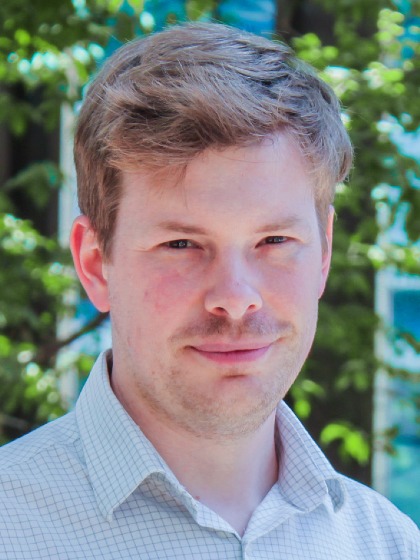
Dr Sebastian Lequime - How do viruses evolve when they are not alone?
The rise of viral outbreaks and pandemics underscores the urgent need to understand viral evolution to better prevent and manage viruses' impact on human and animal health. Most studies overlook that viruses often co-infect hosts alongside other viruses and endogenous viral elements—viral genetic remnants embedded in host genomes. How these factors influence viral evolution remains unclear, despite their potential role in shaping epidemic dynamics and drug resistance. This project investigates the role of co-infections and endogenous viral elements in viral evolution, using an experimental model.
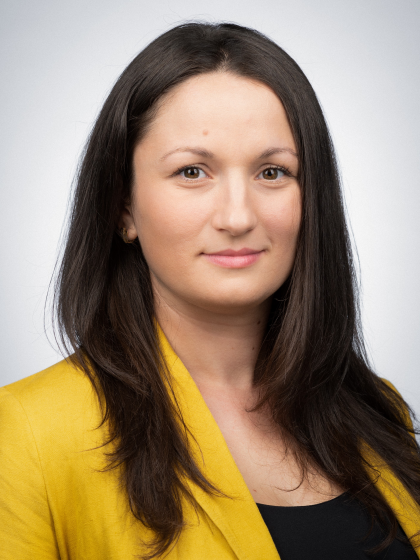
Prof. Loredana Protesescu - Autonomous and responsive inks for next-generation energy nanomaterials (INKS)
Creating efficient, affordable, and durable materials for energy technologies is a challenge. Traditional methods require complex layers of different materials, which can be costly and limit device performance. To simplify this, I aim to develop a one-step process using smart inks that react to pH, temperature, or pressure to create multilayered, stable thin films. The ink will contain perovskite chalcogenide nanomaterials, which combine the benefits of traditional perovskites with enhanced resistance to heat, moisture, UV exposure. This process will streamline production, improve device efficiency, reduce energy use, and make them more durable—ultimately advancing energy technologies for a sustainable future.
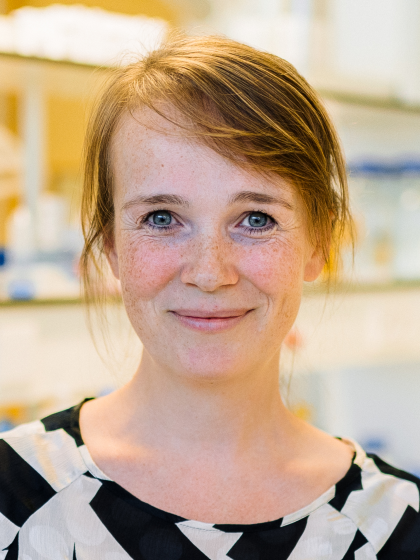
Prof. Marthe Walvoort - Healthy sugars for a healthy gut: Synthetic strategies towards complex exopolysaccharides
Bifidobacteria produce a unique extracellular sugarcoat containing specific polysaccharides that promote a healthy gut. Current methods to isolate the polysaccharides suffer from low yields and purities, hampering necessary structure-response studies, and ultimately the development of polysaccharide-based therapeutics. In this project, the researchers will develop effective methods to make these polysaccharides in high purity for the first time, which will transform the research on probiotics. Having pure polysaccharides in hand enables our understanding of the bifidobacterial health effects on the intestine and inflammation.
Veni awards
Veni is aimed at excellent researchers who have recently received their doctorates. Laureates can use this amount to further develop their own research ideas for three years.
Quentin Changeat - Exoplanet Atmospheres with Next-generation Space Telescopes
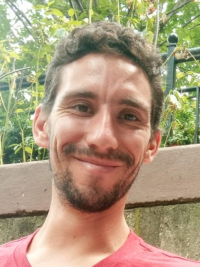
Next-generation Space Telescopes like JWST and the upcoming Ariel can help us uncover the secrets of distant planets (exoplanets) by studying their atmospheres. This project will develop new techniques to handle large amount of telescope data and uncover patterns across 100s to 1000s of planets. By carefully studying the light of a wide variety of exoplanets, we will learn about their chemical makeup, weather, and understand how worlds beyond our solar system formed and evolved.
Wen Wu - Smaller but better: Engineering small Cas12f prime editors for gene therapy
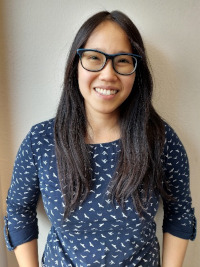
CRISPR-Cas gene therapy has incredible potential to treat genetic diseases, by cutting and repairing faulty DNA sequences and will play a key role in the future of precision medicine. Although some molecular scissors currently in use are effective, they are still limited in use and far from perfect. Delivering large molecular scissors to specific parts in the human body remains a major challenge. This research focuses on studying and optimizing smaller molecular scissors to make them more efficient, precise, and robust for genome editing. By creating these compact tools, this work aims to enable safer, targeted treatments for genetic diseases.
Femke Cnossen - AI and the Future of Work: Are we learning the right skills?
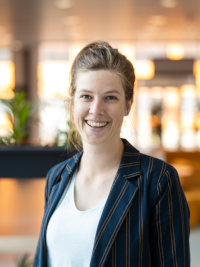
AI technologies are rapidly advancing and can now substitute not only routine tasks but also complex ones, such as programming and writing. What are the implications of these developments for the job market? And are workers sufficiently prepared for this? This project uses AI tools to compare the content of educational programmes with tasks that AI can already perform. It shows which skills are at risk of being replaced ("AI as competitor"), which are complementary ("AI as co-worker"), and which are not yet affected. This provides valuable insights for educational programmes so that students can keep learning the right skills.
Stacey Copeland - From Protest to Podcast: The Sonic Politics of Queer Netherlands
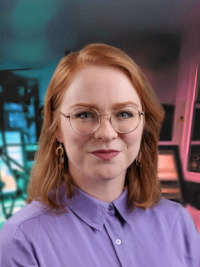
The Netherlands has a reputation as a leader in LGBTQ rights, but the country's rich history of LGBTQ media remains underexposed internationally. As LGBTQ rights are being eroded and compromised around the world, we must ask ourselves: What can we learn by listening back to the development of LGBTQ+ activism through radio made by and for the queer community? Crucial lessons risk being lost if we overlook radio’s pivotal role in LGBTQ activism. In this project, I bring radio archives into conversation with today's community to develop forward-looking media policies and production practices.
Bart Danon - Uneven opportunities of Empire
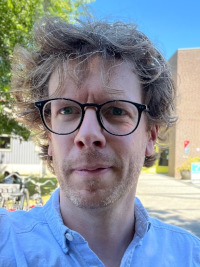
The benefits of the Roman Empire were distributed geographically very unevenly. While elites from some regions managed to penetrate the central power structure in large numbers, thus boosting their wealth and power, others lagged behind. This research shows that variations in economic integration within regions underpinned these different outcomes between regions. These historical patterns shed new light on the uneven regional development in today’s globalised world.
Gesa Kübek - ShEUtrades: Enhancing Women’s Economic Empowerment through EU Trade Policy
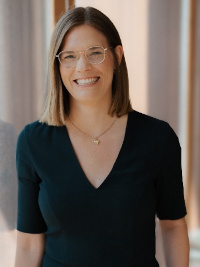
The world is far off-track from achieving gender equality (UNSDG 5). Trade could be an important instrument for eliminating economic gender inequalities. Yet, it remains unclear how trade policies should be changed to ensure that women equally participate in and benefit from trade. I investigate how women’s economic empowerment can be enhanced through EU trade law and practice. My project brings together women scholars and practitioners to develop legal solutions and best institutional practices for enhancing gender equality and women’s empowerment through foreign (trade) policy. In so doing, it amplifies women’s voices and perspectives in both scholarship and policymaking.
Hannah Laurens - Life, Pleasure, Fulfilment: Ancient Theories of Consciousness
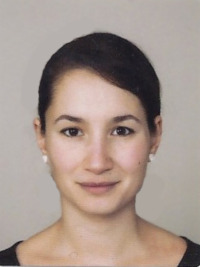
Cogito, ergo sum: many scholars believe Descartes ‘invented’ the idea of consciousness. Earlier thinkers such as Plato and Aristotle lacked the requisite word and therefore lacked the concept – or so it is argued. This project challenges this outlook and reveals the richness of ancient theories of consciousness. Although the ancients did understand consciousness differently, the notion was fundamental to core areas of their philosophy: they saw it as definitive of life and key to selfrealisation and fulfilment. Uncovering the role of consciousness in ancient philosophers’ thought, this research enables us to reappreciate their views and recognise their renewed relevance today.
Adi Stoykova- Algorithmic Detectives: Fair Trial and Reliability Assessment of AI Digital Forensics in Criminal Investigations
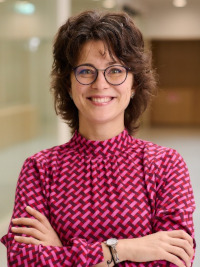
Law enforcement is increasingly using artificial intelligence (AI) to examine digital data for evidence, but how reliable is this evidence, and does it uphold human rights in criminal investigations? This project compares evidence laws in the Netherlands and Germany, focusing on AI regulation and forensic validation. Through legal analysis and case studies, it will assess the reliability of AI systems in various investigation scenarios and identify potential risks to individual rights. The goal is to develop new standards and guidance that ensure AI digital forensics are reliable, aligned with human rights protections, and support the integrity of criminal investigations.
Frank Tsiwah - Language Technology Can Help Aphasic Individuals to Find Their Missing Words
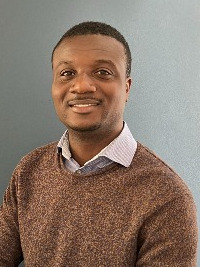
Aphasia is a language disorder affecting many stroke survivors. This condition makes finding words incredibly challenging, like a constant "tip of the tongue" feeling. Current treatments often fail to address this problem in real-world communication settings. For this project, I will use advanced artificial intelligence (large language models) to create a next-word prediction system that understands aphasic speech and then suggest appropriate words when people with aphasia cannot find the right word. With this assistive technology, I aim to help individuals with aphasia to communicate more effectively in their daily lives.
Qian Huang - Negotiating Digital Visibility: Public Intellectuals’ Cautious Labor

Public intellectuals address public concerns critically and are instrumental for civil society. Cultivating digital visibility is an integral part of their work and has been intensified by digital platforms, which also exposes them to risks like online shaming and harassment. What are their struggles and tactics in balancing digital visibility? By comparing experiences from public intellectuals in three sectors in China and The Netherlands, this project provides an empirically informed conceptualization of cautious labor—the physical, cognitive, and emotional work in negotiating digital visibility. Subsequently, awareness videos, toolkits, and workshops are developed for public intellectuals’ safer digital visibility.
Lynn van Olst - Cracking the code: understanding genetic control of immune responses in Alzheimer’s disease
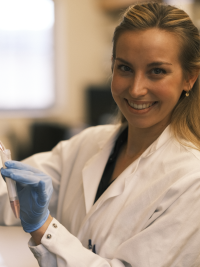
Key hallmarks of Alzheimer’s disease (AD) are harmful protein deposition and persistent inflammation in the brain. The genetic variant APOE-å4 greatly increases risk to develop AD, yet it is unclear how this gene variant changes the immune responses of the brain. This research focuses on epigenetics, the system that regulates gene activity without changing the underlying DNA sequence. By using advanced sequencing and stem-cell models, this project will clarify how APOE-å4 changes gene activity in brain immune cells. These findings will lead to a better understanding, and potentially reversing, of the epigenetic processes that drive dysfunctional immune responses in AD.
Lynn van Olst, Faculty of Medical Sciences/ UMCG
